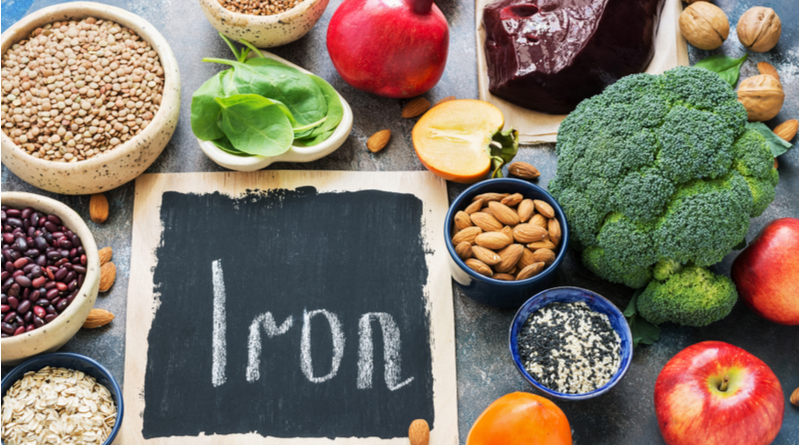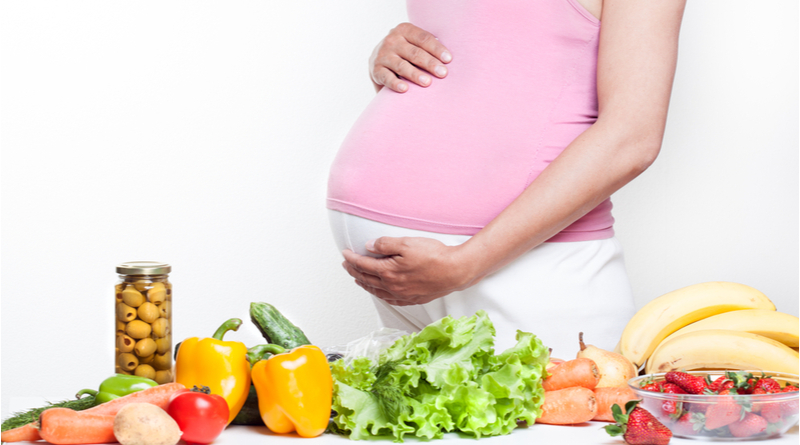When a woman is pregnant, she has to pay extra attention to her immune system. The nutrients required to support it are often being absorbed by the developing fetus as well. That is why it is important to maintain a healthy balanced diet during pregnancy. Keep reading to learn a couple important nutrients that you should be sure to include in your diet, along with the best foods to eat to obtain those nutrients.
Iron
One of the most important nutrients that every pregnant mother should include in their diet is iron. Iron is an essential element in the production of hemoglobin, the protein in red blood cells that is responsible for containing oxygen. Pregnant women are highly susceptible to developing an iron deficiency. It is estimated that 50% of all pregnant women will experience an iron deficiency at some time during their pregnancy, most often during their third trimester.

Iron does not solely play a role in blood cell production; it also ensures that the immune system stays fortified and robust. It increases an expectant mother’s resistance to developing stress, infections, and disease. It is recommended that pregnant mothers receive an average of 27 mg of iron daily. Mothers that are breastfeeding should receive 9 -10 mg of iron every day.
Some of the best natural food sources of iron are as follows:
1. Legumes
Legumes such as, lentils, beans, soybeans, and chickpeas are great sources of iron, especially for women that are vegetarians or have a meat restricted diet. The best legumes to improve your iron intake are kidney beans, black beans, and navy beans. A simple half cup serving of cooked black beans contains 1.8 grams of iron, which is approximately 10% of the recommended daily value.
Legumes have the additional benefit of being high in fiber, which makes them helpful for regulating the digestive system, something that can be very beneficial for expecting mothers.
2. Quinoa
Quinoa is a wonderful grain that is also considered to be a superfood. It has a whole host of health benefits due to its varied nutritional profile. Most importantly for pregnant mothers though, it contains quite a bit of iron. A single cup of cooked quinoa has around 2.8 mg of iron, which is about 16% of the recommended daily value. Quinoa is also gluten free, which can help pregnant mothers feel less bloated over time.
Vitamin D
Vitamin D is more commonly known as the sunshine vitamin because the body is able to produce it naturally when the skin is exposed to the UV rays that originate from the sun. The vitamin is essential for helping to regulate the immune system, because it plays a major role in white blood cell production. Many pregnant women develop a vitamin D deficiency during their third trimester due to the body’s increased calcium demands. It can be very difficult to obtain the proper amount of vitamin D from the sun under normal circumstances; it is even more so while pregnant.

It is recommended that pregnant women consume 600 IU of vitamin D daily under normal circumstances. Women who are suffering from vitamin D deficiency should consume between 1,000-2,000 IU of vitamin D a day.
Some of the best natural vitamin D food sources are as follows:
1. Fatty fish
Fatty fish like salmon, mackerel, sardines, and herring, are great sources of vitamin D. A wild caught salmon contains 988 IU of vitamin D which is around 125% of the daily recommended serving. Farmed salmon, however, contains roughly 25% of the same amount.
2. Egg yolks
Eggs are not only a good source of protein, they are also a great source of vitamin D. The majority of the protein is contained in the egg whites, while the majority of the vitamin D is in the yolk. The standard egg yolk contains 37 IU of vitamin, which is roughly 5% of the recommended daily amount. Eating two eggs at breakfast everyday won’t meet your required vitamin D content, but it will get you off to a great start.








